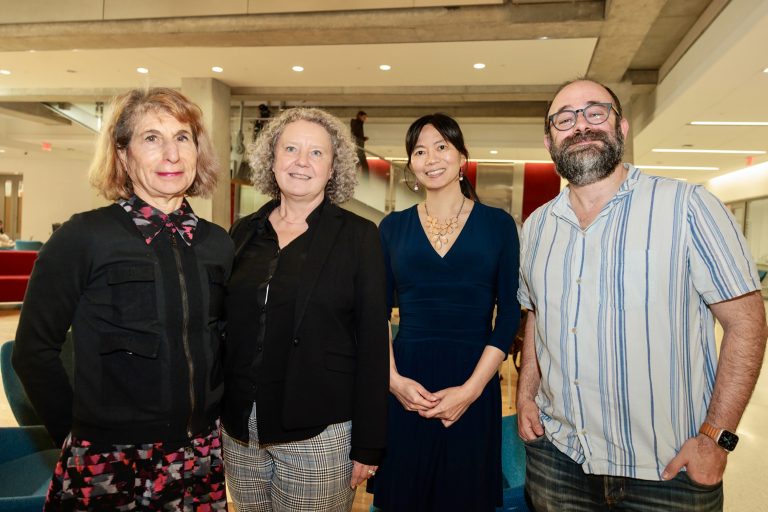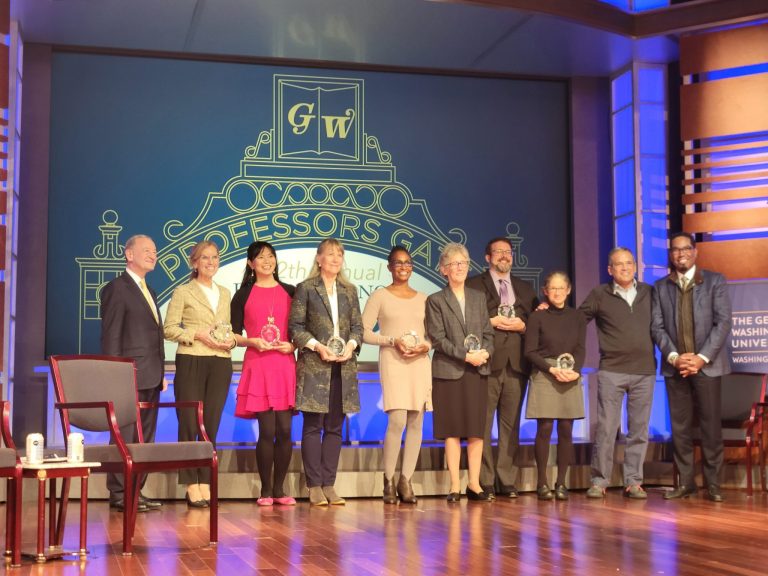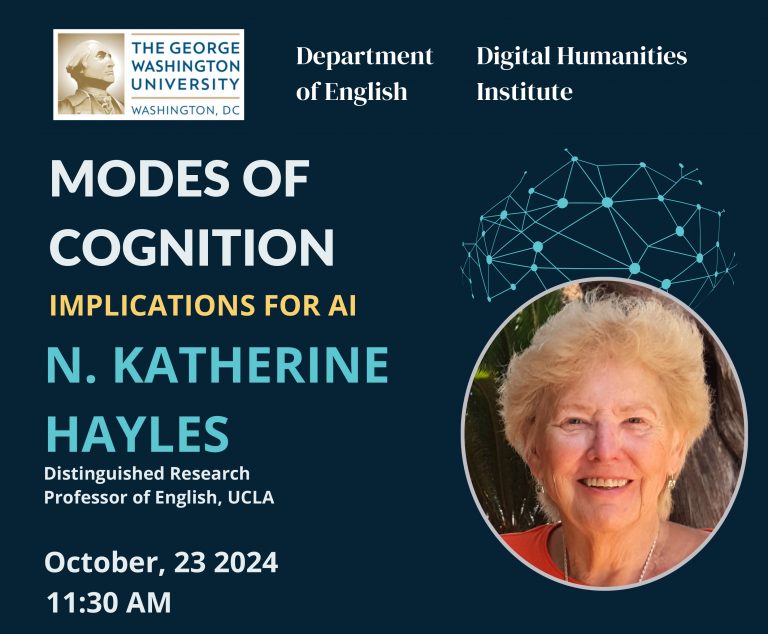Joubin Receives the bell hooks Legacy Award
GW Digital Humanities Institute founding co-director Alexa Alice Joubin was named the inaugural recipient of the bell hooks Legacy Award on April 7, 2023. The Popular Culture Association and American Culture Association (PCA / ACA) established the award to commemorate the late feminist writer and activist bell hooks (1952-2021) who has authored more than 30 books.
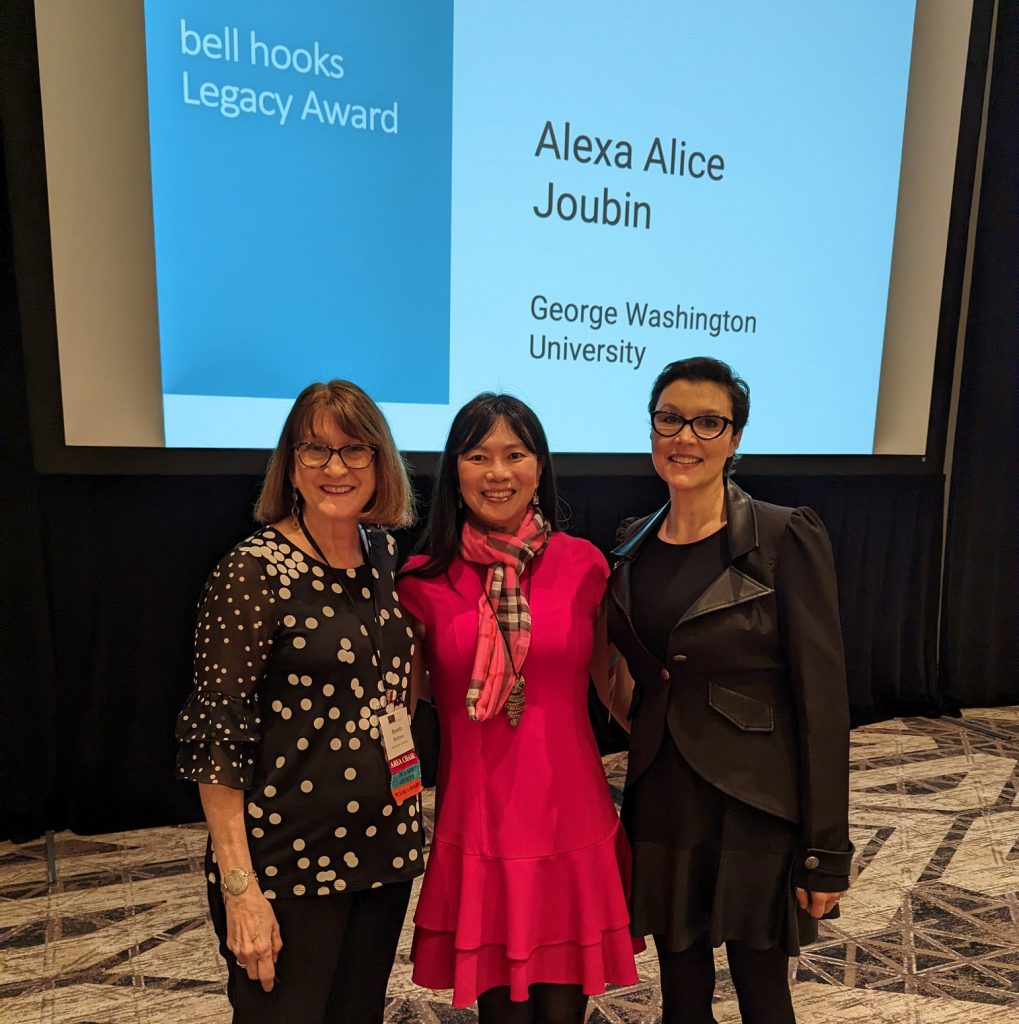
The award ceremony in San Antonio, during the PCA / ACA 50th Anniversary National Conference, was chaired by Vice President for Awards Brenda Boudreau and presented by chair of the board of trustees Colleen Karn and editor of the Journal of Popular Culture Novotny Lawrence.
The award recognizes Joubin’s achievements in research, teaching, and service, particularly her efforts to “dismantle intersectional systems of oppression with the distinct goals of uplifting members of historically marginalized populations and striving for social justice, all while teaching compassion and love” through publicly available generative AI tools as assistive technology, open-access publications (such as her own Screening Shakespeare), and inclusive pedagogies.
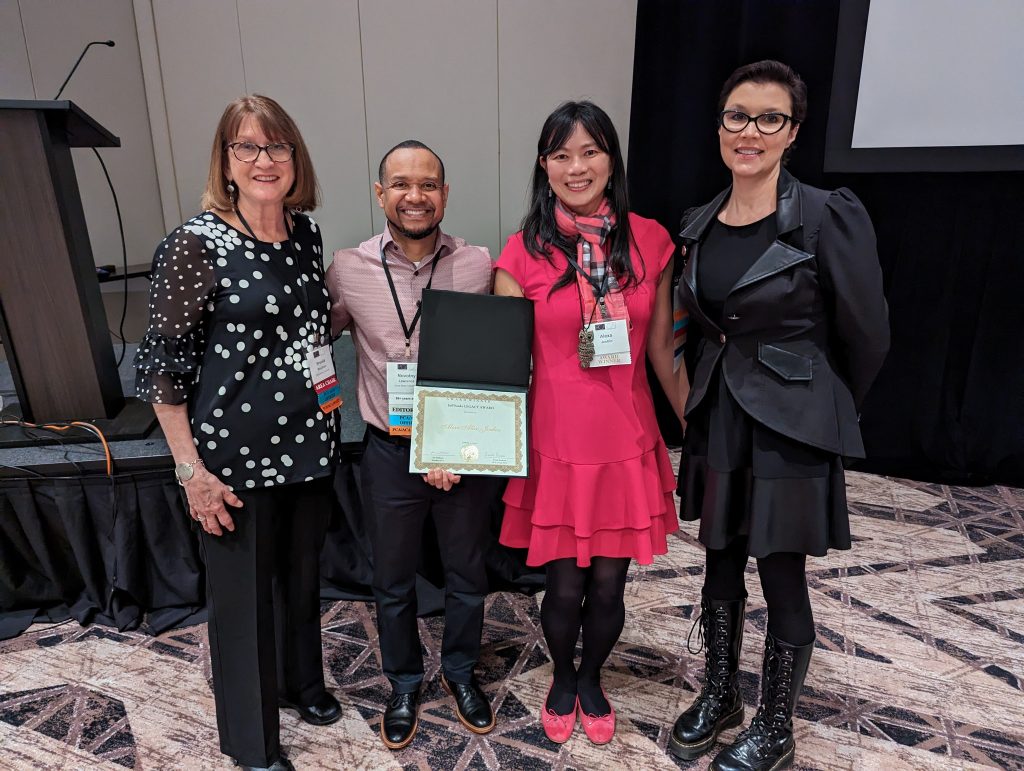
The committee recognized the global impact of Joubin’s “groundbreaking work that speaks to our moment in history and our hope for the future” and the ways in which her “academic career is a stellar example of intersectional criticism.”

Reflecting on her personal and intellectual journey, Joubin says that when she immigrated from Taiwan to the United States, she “became noticeable, racialized, and gendered” and she “became a stranger even” to herself.
Questions of race and gender loom large in Joubin’s person life as an immigrant. However, as a woman of color who is seeking refuge from politics that cause personal harm, she has shunned these issues as research questions even though, or perhaps because, they are too close to home for her. She says she has “been in transit and on the road.”
It took her a decade to finally come to terms with these issues: The kind of work she does has been “energized and shaped by this sense of transitivity and marginalization.” It was a big step for her to find the courage to write on topics that are sensitive to her personal life.
She has now realized that “what one sees correlates to how one sees, and whether one is truly seen by having one’s presence properly acknowledged hinges on whether the society actively tackles epistemic invisibility of minorities.” The ways in which a person is labeled by the society impacts how their identities are made to “perform” in various contexts.
Joubin does, however, caution against expecting minorities to educate others by sharing their personal experiences as “testimony.”
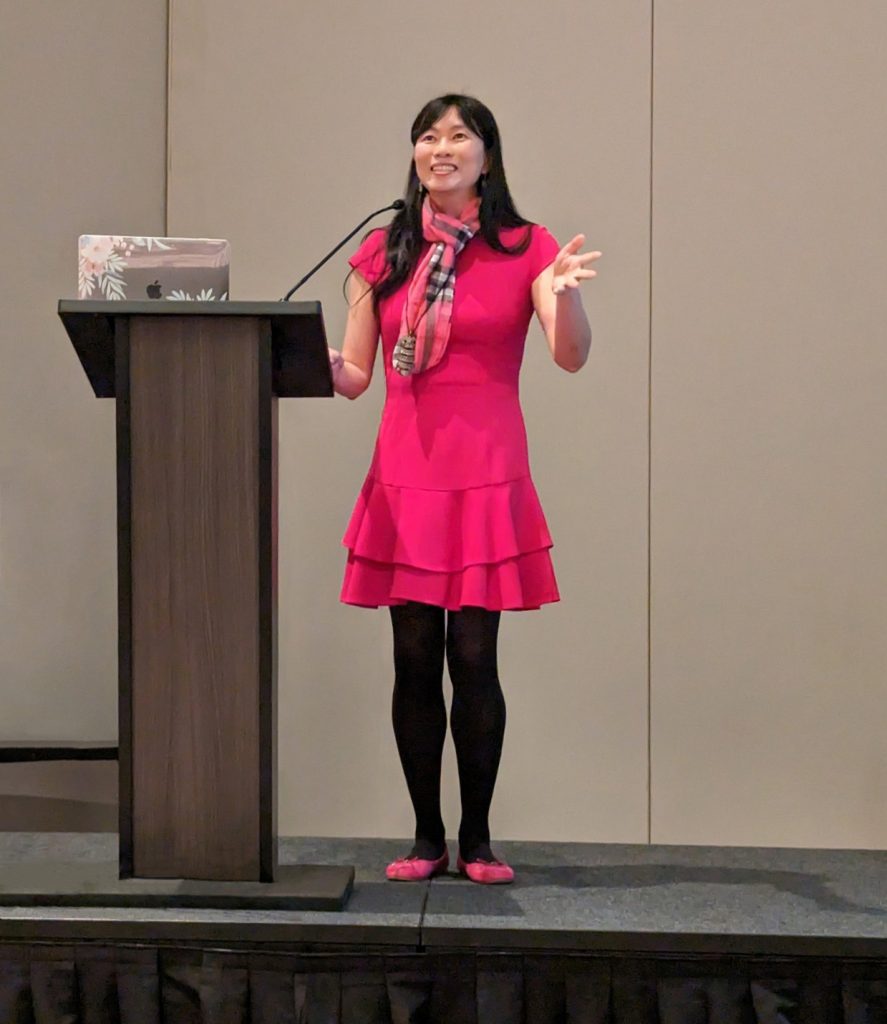
While many scholars in critical race and gender studies have personal investments in the topics, and while Joubin recognizes that “the personal is political,” she opposes the disproportionate burden of “coming out” and “full personal disclosure” for the minorities.
As an advocacy speaker, writer, and educator engaged in feminist anti-racist work, Joubin honors bell hook’s legacy of fostering inclusive pedagogies by actively fighting racism with historical knowledge. On campus, she has worked to create qualitatively meaningful and inclusive representation of minorities and to increase administrative transparency.
As a public intellectual, Joubin has worked on turning diversity from a “problem” to be solved into an opportunity to be seized, and to build a longer, and more global, feminist history of race and gender. Her writing nurtures difficult but necessary conversations about gendered and racial otherness.
One caveat in the teaching of minoritized experiences is some students’ assumption that critical race and transgender studies are only relevant to nonbinary students of color. In some cases, students are hindered by the idea that only those who embody particular identities are entitled to speak up.
Joubin believes that a solution to hate and divisive politics is multidisciplinary work that creates bridges between different ways of thinking, because hate is a product of artificially created social silos. Tools from various disciplines help us catch things that may otherwise fall through the cracks between established fields.
Race and gender are in fact in a transitive relationship to each other, because these concepts involve social actions that are carried out in relation to direct objects. Sexism often racializes gender expressions, and racist attitudes appropriate gender stereotypes. Interdisciplinary tools of critical race and gender studies reveal that most claims of political neutrality (“I don’t see race”) or historical objectivity are nothing more than an illusion based on willing acceptance of presumptions.

